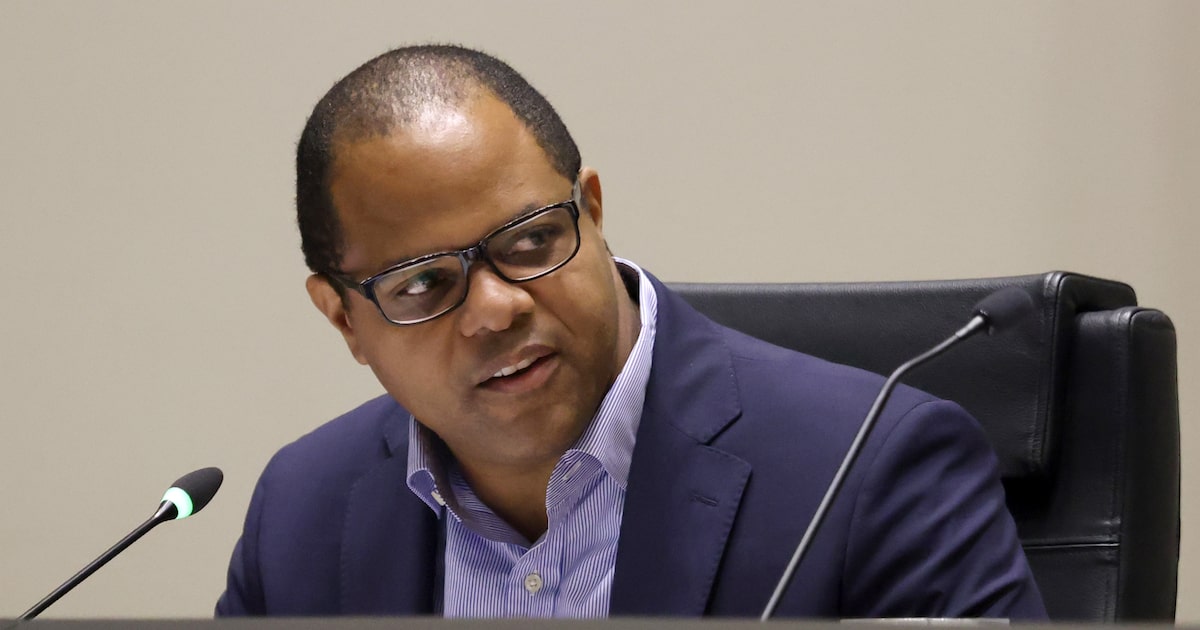
Michael Hogue
I did not want to write about Mayor Eric Johnson maybe resigning, maybe not. The thing is: He often says things that are not mayoral. He just can’t help himself.
Instead of returning phone calls or emails about the rumors that he was leaving, he issued a snarky post on social media about his intentions. When he posted, “I will continue serving our great city as its mayor!” it made me think: I’d like him to start serving it, and not himself.
Former council member Jaynie Schultz, who occupies the opposite side of the political aisle from Johnson, told me: “His lack of interest in actually leading us is very sad. It was an opportunity of a lifetime for him.” She paused. “It really is sad. He squandered his opportunity to be a hero.”
Indeed, Johnson had ample opportunity. He had widespread popular approval from the business community and voters. He served when sales tax receipts and property tax revenue were high and, later, the city had an influx of federal funds for COVID-19 relief. He also had a highly effective police chief.
Opinion
Schultz complained, “It devolved into silos.”
Johnson swept into office not understanding how the city works — and why it works so poorly in many ways. Dallas has a peculiar form of government. I call it 14 mayors and one person who runs the meeting. In many ways, the mayor is the least powerful member. Johnson was unaware of the power of the council members and the requirement for an effective mayor to be able to work with them.
He came in and immediately failed, maybe refused, to appoint committees. Since then, he’s referred to everyone as “chair” this or that. It’s resulted in two tiers: his favorites and those he chooses to punish. That doesn’t work.
Effective mayors make sure to always have most of the members on their team. In my era at City Hall, I’ve worked with Ron Kirk, Tom Leppert and Mike Rawlings. They all commanded the respect of their colleagues. Importantly, they treated them as such.
Schultz hopes the next mayor will be “a highly efficient leader who brings out the talents of everyone on the team.” That would, of course, require a leader who sees themselves as part of a team — not the center of attention or power. It also would require attending all the meetings, and staying until the end.
Schultz said the mayor doesn’t see the talent in his colleagues. Instead, he is too busy showing what a great Republican he is. I believe he’ll be remembered for being the first mayor to make the office a partisan one.
Which brings us back to what he’s doing in being coy about his intentions. You can’t expect to register the domain ericjohnsonfortexas.com and hold fundraisers when you are term-limited and not expect the City Hall reporter from the paper of record to ask questions.
While everyone has been speculating about his intentions, he’s been demonstrating his Republican fealty. He posts photos of himself with Gov. Greg Abbott, Land Commissioner Dawn Buckingham and others, often with a snarky barb. I know we are used to executive government officials doing too much social media posting, but online impression management is not mayoral leadership.
He’s playing the political hokey pokey — putting his right foot in and his right foot out. Only he does not want people to remember the old left foot from his days in the state Legislature. You can be sure in a Republican primary we’ll get some historical views of bills he authored.
I am sure his fellow Republicans will point out in 2017 he filed a bill to include incarcerated individuals in redistricting population totals based on their last residence before imprisonment. That means all those people arrested in big blue Texas cities and shipped to rural prisons would still be contributing to election seats associated with their home addresses.
In that same session, he also very publicly led efforts to remove a Confederate plaque from the Capitol. He’ll have some ’splaining to do on that one.
Another bill he authored, which died in committee, would have prohibited employment discrimination based on sexual orientation or gender identity.
Even worse for Republican voters, he wrote a bill prohibiting law enforcement from inquiring about the nationality or immigration status of a victim or witness to a crime.
One member of the current council told me, “We need someone who can get nine or 10 on every issue.” Leppert, Rawlings and Kirk could do that when they needed to. There’s hope the next mayor can too.

